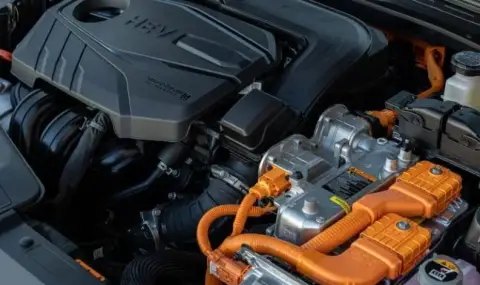Hyundai is actively working on a new hybrid system designed for compact cars to meet increased market demand. These plans are introduced to strengthen the HEV (Hybrid Electric Vehicle) range, which is becoming increasingly popular in the light of green trends, but also those related to the growing interest in electric vehicles.
The new technology aims to fill the gap created by the growing slowdown in sales of all-electric vehicles. According to Lee Seung, Hyundai's head of planning and finance, the company is developing an HEV system that can be installed on small cars.
„Before, HEVs were only in medium and large models, but now we are developing a hybrid system for small cars. We plan to develop a system that will allow our entire range to be equipped with HEV hybrids,” Lee said.
Hyundai is also developing a new HEV system for large vehicles based on a 2.5-liter turbo engine. This new unit will be introduced for the first time in the next generation Hyundai Palisade.
Currently, Hyundai's hybrid system is based on a 1.6-liter turbocharged engine. Depending on the model, the size of the electric motor or battery may vary, so the total power or torque is different.
For example, the compact SUV Tucson HEV and the minivan Staria HEV are based on the same 1.6-liter unit, although the system output of the powertrain is different. A similar idea is embedded in the development of the new HEV unit.
With this new powertrain, Hyundai will be able to launch more models capable of using hybrid powertrains, such as the updated versions of the Kona and Elantra HEV, and add it to new models such as the KIA K4 and Seltos. The new powertrain is expected to be more efficient, powerful, compact and lighter.
